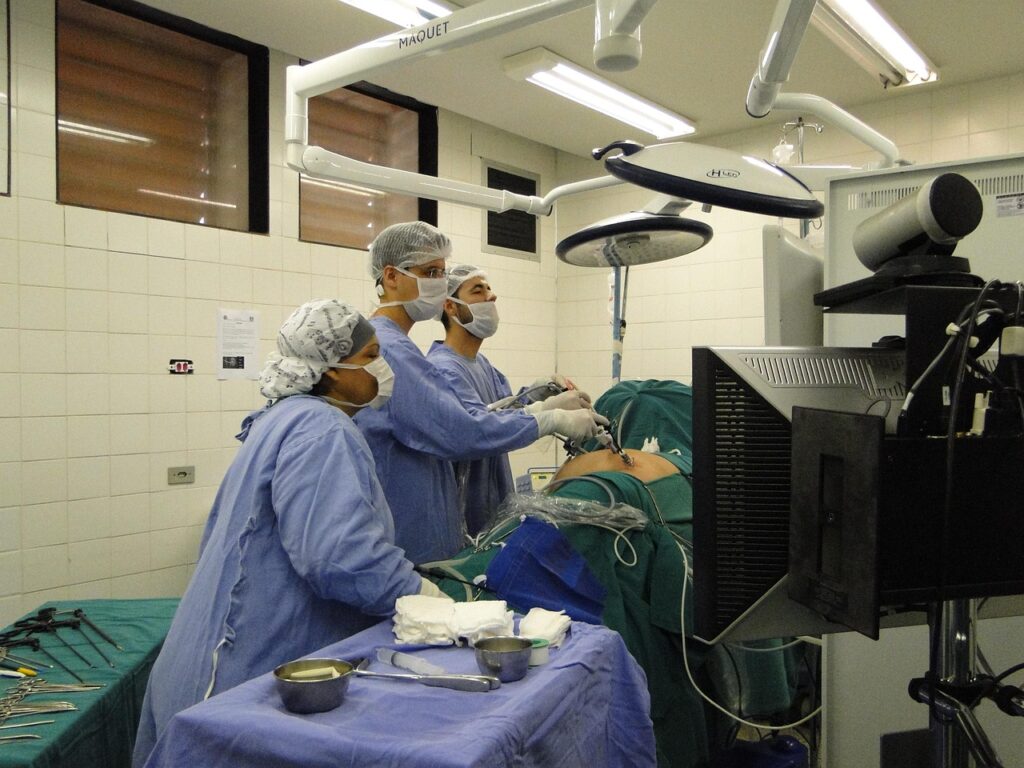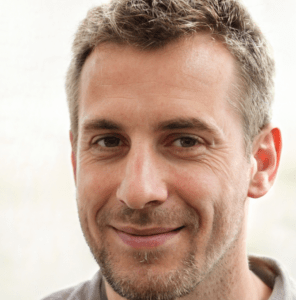Brain surgery probably doesn’t scream “summer fun” to most teenagers. But Dr. Nathan Starke, who’s now a urologist in Houston, recalls how a special opportunity to get into an operating room at 14 years old ignited a lifelong passion for medicine and surgery.
“I spent the summer with a pediatric neurosurgeon and watched brain surgery all summer,” Dr. Starke recalls. Thanks to his connection with a family friend, he gained access to the neurosurgery operating room younger than most.
It was off to the races from there.
After college at Vanderbilt and medical school at Baylor College of Medicine, Starke completed his urology residency at UT Southwestern Medical Center in Dallas, achieved an advanced andrology fellowship at the University of Virginia, and returned to Houston to become Director of the Houston Methodist Men’s Health Center.
In a recent interview, Nathan Starke shared the origins of his medical career, how he chose urology as his specialty, and where he wants medicine to take him next.
A Surgical Spark Ignited Early
Growing up in Houston in a family of physicians, Dr. Starke knew medicine was in his future. He took an early interest in surgery, and his parents connected him with a pediatric neurosurgeon who brought him along to see life-saving operations in person.
“I knew I wanted to be a surgeon because of how incredibly cool it was to watch them go in there, fix problems physically, and then the kid would wake up and be better or his tumor would be gone.”
That visceral, tactile approach to surgery, the ability to directly intervene and see immediate results, captivated him. “I loved the hands-on part of it,” he explains, contrasting it with the medical approach of prescribing medication and managing chronic conditions.
The Search for the Right Specialty
By medical school at Baylor College of Medicine, Dr. Starke had narrowed his options to three surgical specialties: urology, plastic surgery, and orthopedic surgery. Each had its appeal, but each also had its drawbacks.
Orthopedic surgery, despite being his brother’s chosen field, seemed too straightforward. “My brother’s an orthopod,” Dr. Starke says with a laugh, using the affectionate nickname surgeons give orthopedic specialists. “I spent two weeks doing joint replacement surgery. It was a little too mechanical for me. The classic inside joke about the orthopedic medical record note is BBMF—bone broke, me fix.”
Plastic surgery offered the artistic creativity he craved, but the specialty’s culture didn’t quite fit. “I remember sitting through a conference where these grown men were just going on and on about the aesthetics of some nipple and how beautiful it was,” he recalls, chuckling again. “They do amazing, sometimes miraculous work, and everything about the field is interesting, but the personality type was pretty specific and not quite my cup of tea.”
Finding His Fit in Urology
Urology, however, checked all the boxes. The field offered intellectual challenge, technical complexity, and a culture that resonated with him.
“My parents always told me that you tend to go into a specialty where your personality meshes well with the people who already do it,” Dr. Starke explains. “Urologists as a whole tend to be down-to-earth and very funny. Everybody’s smart because it’s hard to get into and it’s a high-paying specialty, but at the end of the day, everybody’s a penis doctor. Everybody’s very laid back.”
The specialty also offered remarkable diversity in procedures, from robotics to microsurgery, kidney transplants to fertility treatments. And practically speaking, the work-life balance appealed to him.
“The number of emergencies is very small as opposed to orthopedics or neurosurgery, where with every car accident, you have to go into the hospital,” he notes.
Discovering a Passion for Men’s Health
During his urology residency at the University of Texas Southwestern Medical Center, Dr. Starke discovered his specific calling within the field. While urology encompasses cancer treatment, kidney stones, and female urology, men’s health stood out for its unique combination of clinical challenge and patient impact.
“Men’s health ultimately doesn’t deal with a whole lot of life-or-death situations,” Dr. Starke explains. “You do a ton of quality of life improvement for men for really very specific and often super personal male issues.”
His natural communication style proved perfectly suited to helping men discuss sensitive men’s health concerns.
“I’ve always kind of had a way of connecting with men on a real level. I’m not like the scientist weirdo who uses all the medical terminology,” Starke says. “People appreciate that. They like it when you level with them and act like a normal person.”
This approach helps men feel comfortable discussing issues they might otherwise suffer with in silence. “Helping men with male-specific problems and really improving the quality of life was extremely gratifying,” Dr. Starke says. “It’s a wonderful field.”
Dr. Starke’s interest in men’s health goes beyond the clinic. He has published research on topics including using semen analysis as a screening tool for overall health in young men, fine-needle vasography for diagnosing male reproductive tract obstructions, emerging therapies for erectile dysfunction, and the connection between low testosterone and cardiovascular disease risk.
Advanced Training Opens Doors
After completing his residency in 2016, Dr. Starke pursued an andrology fellowship at the University of Virginia, focusing on male reproductive medicine and surgery. This specialized year of training proved invaluable in two ways.
First, it provided him with expertise in areas not typically covered during residency: hormone replacement therapy, male infertility, and advanced microsurgery techniques like vasectomy reversals.
Second, the fellowship offered a unique transitional experience. “I spent about 50% of my time being a junior attending where I had my own patients, had my own clinic time, did my own surgery, and taught the residents in the clinic and in the OR,” he explains. “It was sort of a training wheels version of being a grown-up doctor that really let me get my feet wet in an environment where I had tons of support.”
This preparation enabled him to “hit the ground running” when he returned to Houston to become the first director of the Houston Methodist Men’s Health Center straight out of training.
A Career Built on Connection
Today, the path Dr. Starke took from that teenage summer in the neurosurgery operating room to leading a comprehensive men’s health center reflects both careful planning and following his instincts about where he’d fit best professionally.
His direct yet relatable approach to patient care helps men address health issues they might otherwise ignore. “Men are notoriously terrible at taking care of their own health,” he notes. The Men’s Health Center serves as an entry point, addressing concerns like sexual dysfunction or low testosterone while ensuring patients receive comprehensive care for their overall health.
Looking back on his journey, Dr. Starke’s early exposure to the immediacy of surgical intervention, combined with his search for a specialty that matched both his skills and personality, led him to exactly where he needed to be: helping men improve their quality of life, one honest conversation at a time.



 David Benefiel is a seasoned fitness professional and passionate writer for My Healthy Living and Strategies, where he focuses on delivering practical advice for maintaining a balanced and healthy lifestyle. With years of experience in strength training, nutrition, and holistic wellness, David offers in-depth guidance to help readers achieve their personal health goals, whether through tailored fitness plans, dietary changes, or mental wellness practices.
David Benefiel is a seasoned fitness professional and passionate writer for My Healthy Living and Strategies, where he focuses on delivering practical advice for maintaining a balanced and healthy lifestyle. With years of experience in strength training, nutrition, and holistic wellness, David offers in-depth guidance to help readers achieve their personal health goals, whether through tailored fitness plans, dietary changes, or mental wellness practices.